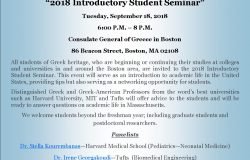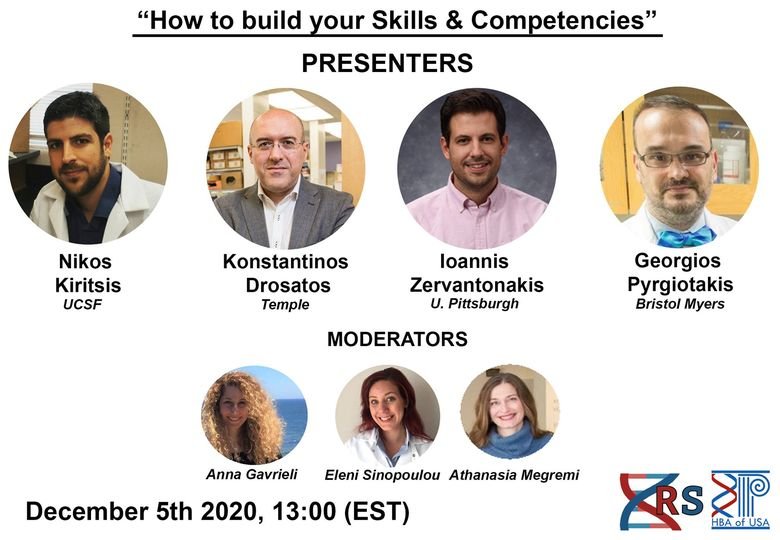Experienced professionals in the field of Biomedical Research, Industry, NGOs and Consulting Firms along with representatives from major organizations presented their career pathway and experience in the Biomedical field in the United States, shared information and participated to a panel discussion that was held at the Embassy of Greece in Washington DC, on December 8th, 2016. The aim of this event was to highlight the multiple pathways a scientist can follow after his post-Doc and the popularity of the “non-traditional” careers away from academia.
The invited panelists were Dr Constantinos Mikelis, Assistant Professor at the Texas Tech University, Dr Eleni Liapi, Assistant Professor at the Johns Hopkins University, Dr Maria Bastaki, Staff Scientist at Verto Solutions LLC and Viktoria Bodnarova, Regional Representative of Euraxess in North America. Dr Mikelis and Dr Liapi described their pathway to an academic position and the challenges they had to overcome in order to succeed in a highly competitive profession. Dr Bastakis outlined the multiple turns in her career pathway and the factors that led her to the decision to leave academia and work in the private sector. Viktoria Bodnarova presented the newly launched Euraxess portal that helps European post-Docs and junior scientists to write grants and return to Europe. The HBA-USA board members, Dr Nikolaos Dimitrakakis and Dr Elisavet Serti, moderated the lively discussion and asked questions that the HBA-USA members have expressed while communicating with the association.
Overall, all participants agreed on the importance of having a career mentor who should be different from your scientific mentor. It is also very important to develop management, communication and marketing skills, in parallel with the scientific skills, in order to increase your chances in finding a position in the private sector, i.e. in a consulting firm, law company, NGO or pharmaceutical company.
The event was held at the Embassy of Greece in Washington DC, on December 8, 2016 and highlighted the multiple pathways a scientist can follow after the post-Doc and the current popularity of the “non-traditional” careers outside of academia. The event was organized by the tireless Elisavet Serti and Nikolaos Dimitrakakis. We would like to thank the Greek Embassy in Washington, D.C. that provided the space and the technical support for this event and in particular Achilles Rakinas.



